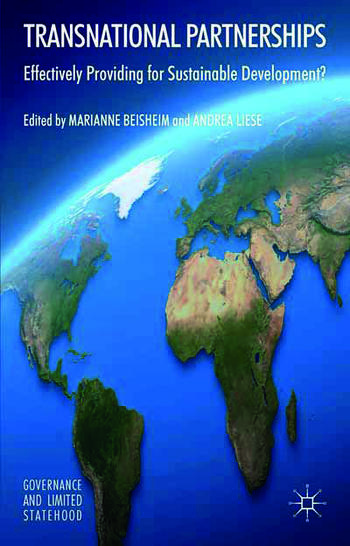Introduction: Transnational Partnerships for Sustainable Development
Marianne Beisheim, Andrea Liese – 2014
Transnational public-private partnerships (PPPs) are a relatively new form of governance. By governance we mean ‘the various institutionalized modes of social coordination to produce and implement collectively binding rules or to provide collective goods’ (Risse, 2011b, p. 9). In PPPs, non-state actors (such as non-profit organizations and companies) work with state actors (such as intergovernmental organizations and public donor agencies) across multiple transnational, national, and local levels to provide collective goods. One could say that these diverse actors ‘co-govern’, thereby performing functions that until recently were generally regarded as the sole responsibility of sovereign states, at least in the ‘OECD world’ (Liese and Beisheim 2011, p. 115; OECD, Organisation for Economic Co-operation and Development).

